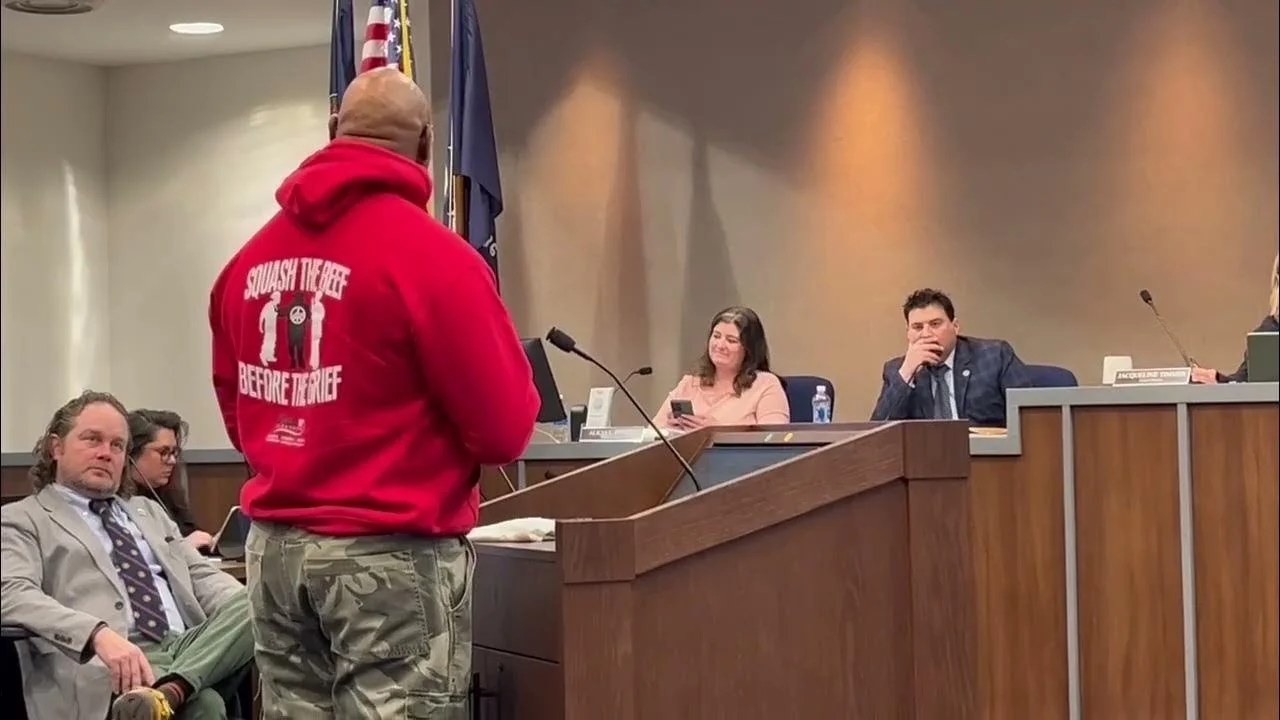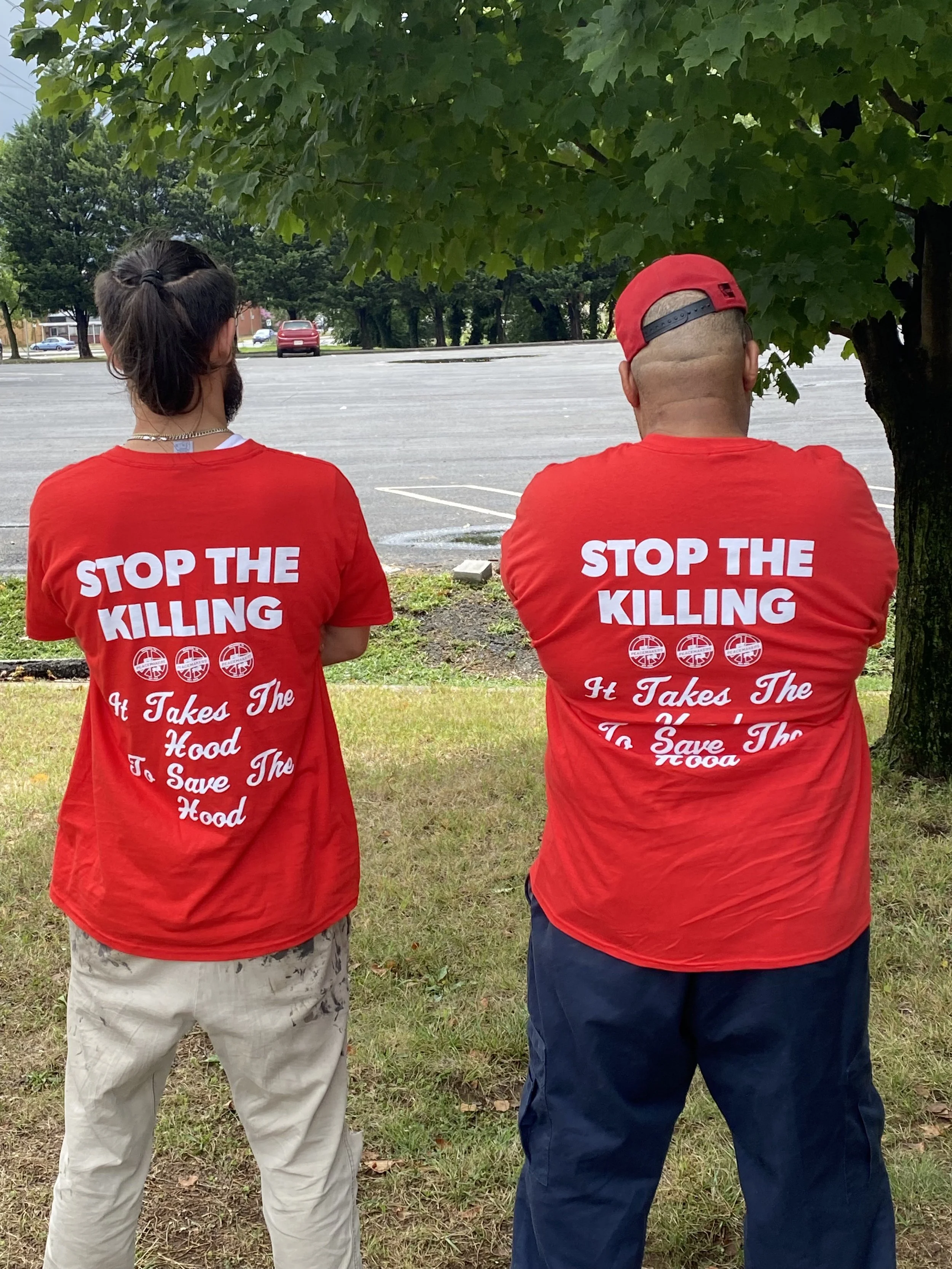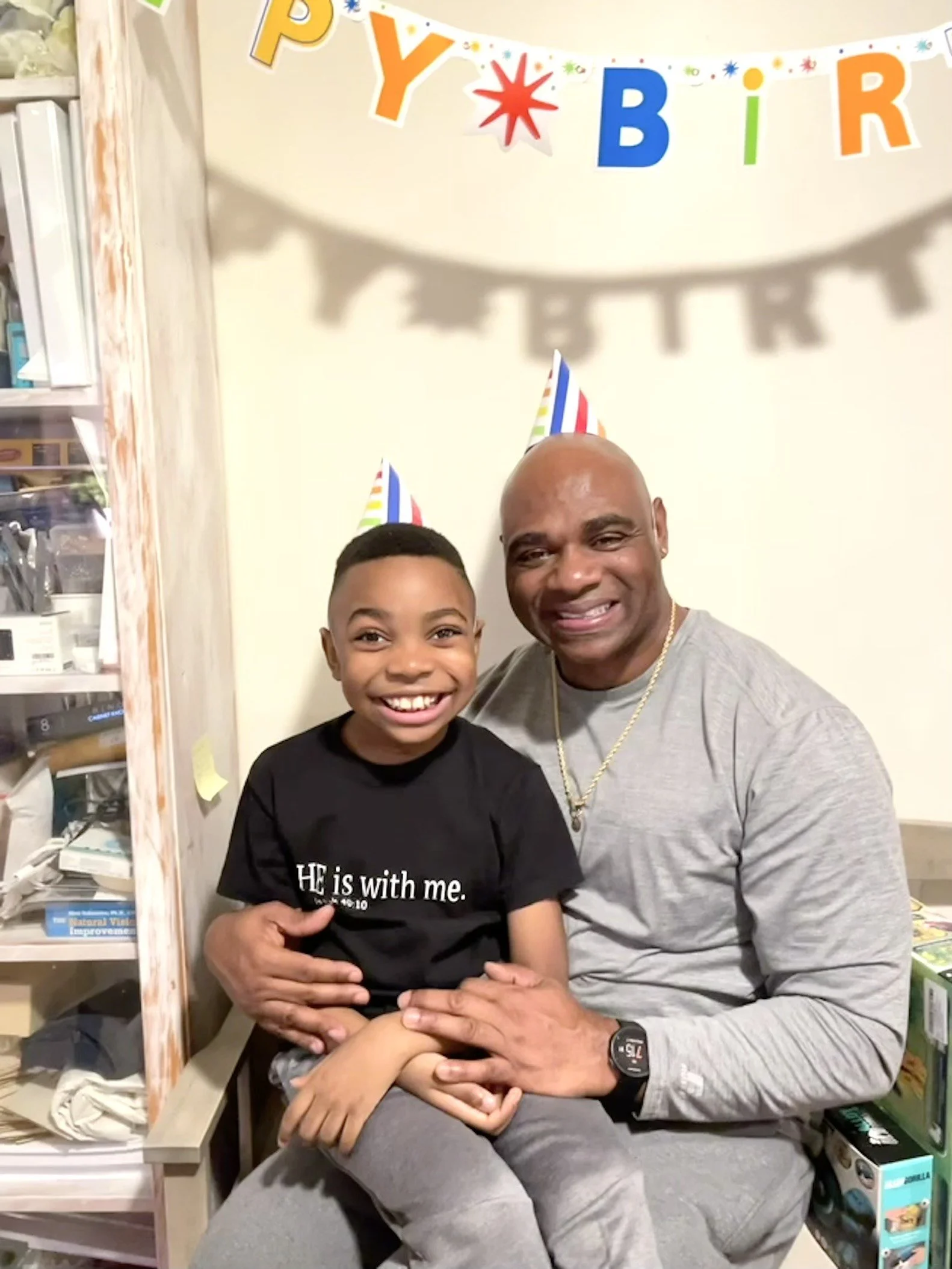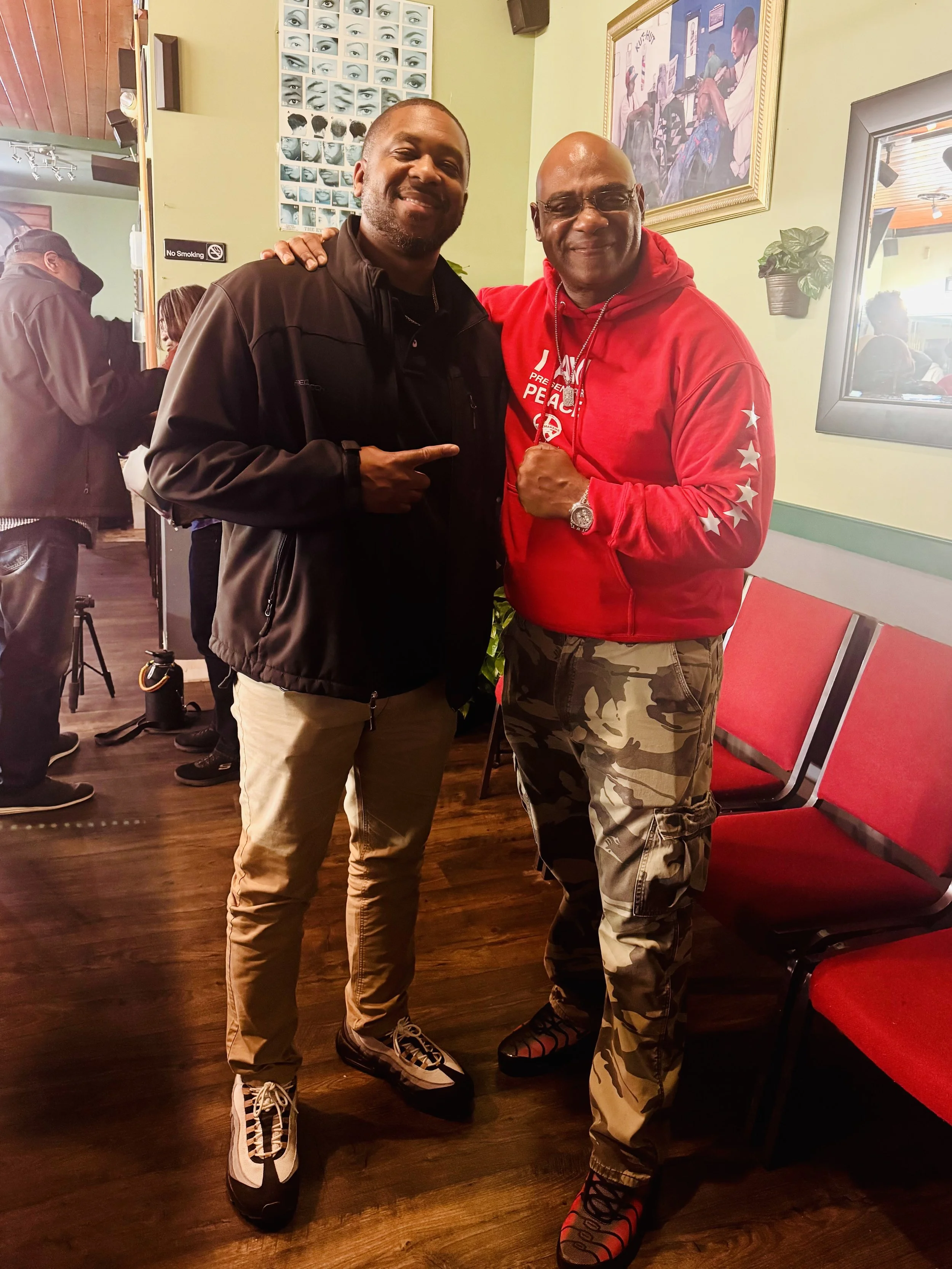Episode #88 | From Setbacks to Setups | Redemption, Community Leadership & Change | The Art of Reinvention Show
Watch The Episode 👇
Listen To The Episode 👇
From Incarceration to Inspiration: How Shawn Hunter is Leading a Community Revolution in Lynchburg
In a powerful and thought-provoking episode of The Art of Reinvention Show, host Johnathan "TeflonJohn" Smith sat down with Shawn Hunter, a man whose life embodies the true essence of redemption, reinvention, and community leadership. This conversation delved deep into Hunter's personal evolution, the roots of systemic issues facing Black communities, and the actionable steps he's taking to create a lasting impact in Lynchburg, Virginia.
A Troubled Beginning
Shawn Hunter's story begins in Covington, Virginia, a small town that, like many others, struggles with poverty, broken families, and limited opportunities. Raised in a tumultuous home environment filled with violence, instability, and neglect, Hunter never had a fair shot at a traditional childhood. As a young boy, he was introduced to chaos and dysfunction, which eventually led him down a dangerous path.
Hunter's teen years were marked by a series of poor decisions, heavily influenced by negative peer relationships and the lack of positive male role models. Moving to Washington, D.C., in his adolescence, he fell in with a crowd that exposed him to street life, crime, and substance abuse. He described many of these older peers as surrogate big brothers. Men who were involved in drug dealing and criminal activity. They taught him that violence was a form of power and that expressing anger through aggression was not only acceptable but expected.
By the age of 16, Shawn's internal battle with depression and hopelessness became overwhelming. He attempted suicide, a desperate cry for help in a world that offered him little guidance. Not long after, he was incarcerated at 17 for a serious sexual offense, resulting in a 21-year prison sentence. It was a turning point that, while devastating, eventually catalyzed his transformation.
Finding Purpose Behind Bars
Unlike many who enter the prison system and become further entrenched in a cycle of self-destruction, Hunter used incarceration as an incubator for change. He rejected the label of being a product of the system and instead committed himself to education, spiritual development, and self-discipline. Hunter began reshaping his worldview through the Nation of Islam and exposure to a range of religious and philosophical texts.
He became a jailhouse lawyer, using his newfound legal knowledge to advocate for himself and others. He started filing lawsuits against mistreatment and unjust conditions within the prison system, which empowered him and those around him and showcased his early inclination toward leadership and justice.
His time in prison wasn't easy. Hunter endured racism, abuse, and emotional trauma. Yet, he emerged stronger, not broken. He obtained his college degree while incarcerated, maintaining a 3.9 GPA, proving that academic excellence could still flourish even in the darkest environments.
He also began developing a passion for conflict resolution, studying human behavior and the psychological roots of violence. By confronting his anger and working through trauma, Hunter cultivated the tools necessary to mentor others who were headed down a similar path.
The Power of Redemption and Reinvention
Upon his release, Hunter wasted no time in applying what he'd learned. He returned to Lynchburg with a mission: to ensure that no other young man would have to endure what he did. In 2023, he founded Lynchburg Peacemakers Inc., a grassroots, anti-violence nonprofit organization aimed at reducing crime and offering hope.
The Mission and Model of Lynchburg Peacemakers
The Lynchburg Peacemakers emphasize changing mindsets by teaching young people alternative ways to mediate anger and resolve conflicts without violence. The organization's philosophy is encapsulated in Hunter’s motto: "When you know better, you do better."
They not only preach non-violence, they actively create opportunities. By employing youth and guiding them toward careers and ownership, they aim for sustainable change. Since its inception, the organization has helped more than 66 young men secure full-time jobs, including some with the city government.
They've also installed about 88 free security cameras in high-crime areas to protect vulnerable groups such as women, the elderly, and single mothers. This initiative increases safety without police involvement and is backed by strong community support.
Community Spaces and Conflict Resolution
In late 2023, the Peacemakers opened a new conflict resolution center not as a luxury space, but as a necessary training ground. This center offers conflict resolution education and free mental health counseling, tackling the underlying causes of violence instead of depending solely on law enforcement.
Their services include barbershop talks, community forums, and “Hour of Power” street walks focused on engaging young men aged 13–24. These conversations take place in culturally familiar settings to foster trust and open dialogue.
Hunter has plans to build a community hub around the Peacemakers headquarters. The vision includes locally owned grocery stores, food venues like “grandma’s home cooking,” barbershops, and retail spaces reviving neighborhoods both socially and economically.
Public Policy and Civic Engagement
Shawn Hunter has been vocal on public policy. In January 2025, he addressed the Lynchburg City Council in support of youth curfew laws, seeing them as a short-term solution to protect vulnerable youth. He advocates for collaboration between schools, city departments, and community groups to build long-term frameworks for safety and success.
Diagnosing the Real Issues
In his interview, Hunter pulled no punches when discussing the systemic problems that plague Black communities. He highlighted the “school-to-prison pipeline,” citing that third-grade reading scores often predict future incarceration. Underfunded schools, underqualified staff, and lack of enrichment programs accelerate this cycle.
He also criticized the criminal justice system’s harsh sentencing of juveniles. Tried as an adult at 17, Hunter received a sentence usually reserved for older adults, with little regard for youth rehabilitation.
Combating Stigma and Advocating for Change
Even post-incarceration, the stigma attached to former offenders is a hurdle. Many churches and businesses close their doors to returning citizens. Hunter challenges this mindset, urging institutions to become agents of restoration, not judgment.
His vision includes vocational training, entrepreneurship, financial literacy, and parenting programs. He believes stable homes and educated minds are the bedrock of violence prevention.
Future Plans and Ongoing Impact
Shawn Hunter’s leadership is gaining momentum. The Peacemakers are working on expanding their partnerships with local schools, businesses, and city leaders to offer apprenticeships and summer job programs. Their new headquarters will serve as a beacon for healing, growth, and opportunity.
Hunter sees ownership of businesses, homes, and identity as the ultimate path to peace. He strongly opposes the over-saturation of liquor stores, fast food, and smoke shops in Black communities, describing them as tools of economic and health oppression. Instead, he dreams of neighborhoods powered by Black-owned enterprises that reinvest in their people.
Final Thoughts from a Transformed Leader
Shawn Hunter’s life is a blueprint for what’s possible when one refuses to be defined by past mistakes. His candidness, humility, and commitment to truth-telling make him a rare and necessary voice in the ongoing conversation about criminal justice reform, community revitalization, and youth development.
In The Art of Reinvention Show, he didn’t shy away from hard truths. He acknowledged his past while emphasizing that redemption is always within reach. As he put it, “Truth may be uncomfortable, but it is necessary for authentic progress.”
Hunter’s journey is more than personal redemption, it’s a mission. He is creating ripples of change, empowering others to rewrite their own narratives. His story is a reminder that while the road to transformation is never easy, it is always worth taking.
Key Lessons and Takeaways
Environment Shapes Behavior: Exposure to violence, neglect, and poverty fosters unhealthy coping mechanisms in youth.
Role Models Matter: Without positive male figures, young people are more likely to seek validation from gangs and criminals.
Education Transforms: Early academic success is a strong deterrent to criminal behavior.
Employment is Empowerment: Financial stability builds confidence, responsibility, and independence.
Community Control is Essential: Black communities must own and control their resources to break the cycle of dependency.
Parenting is Foundational: Household stability and parental involvement are critical to shaping well-adjusted children.
Redemption is Real: No matter the past, transformation is always possible through education, support, and faith.
Shawn Hunter is living proof that even the most broken beginnings can lead to a purposeful and impactful life. His message to Lynchburg and the world is simple yet profound: We rise by lifting others.









